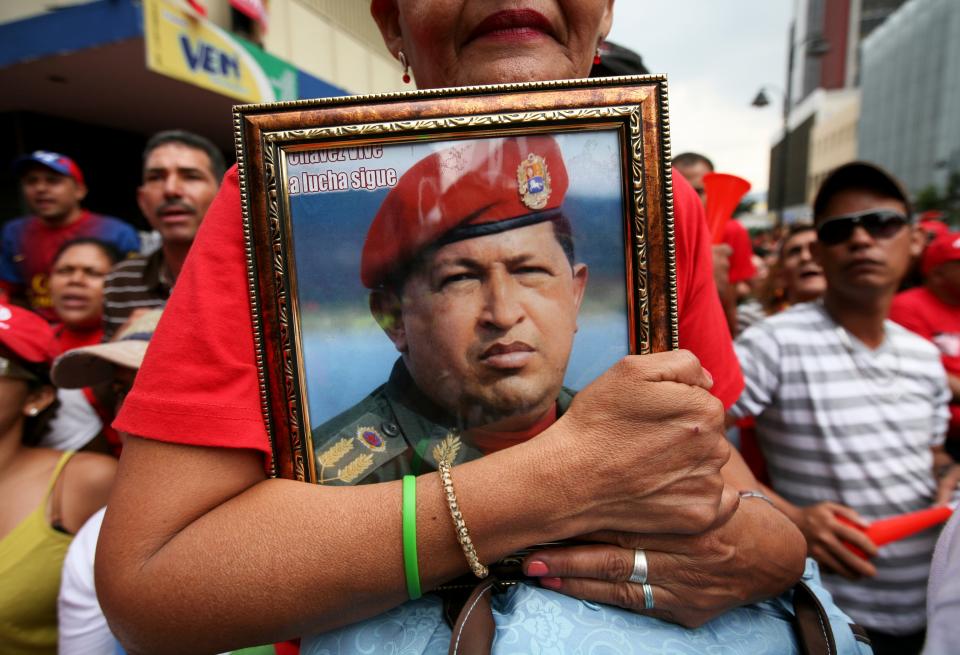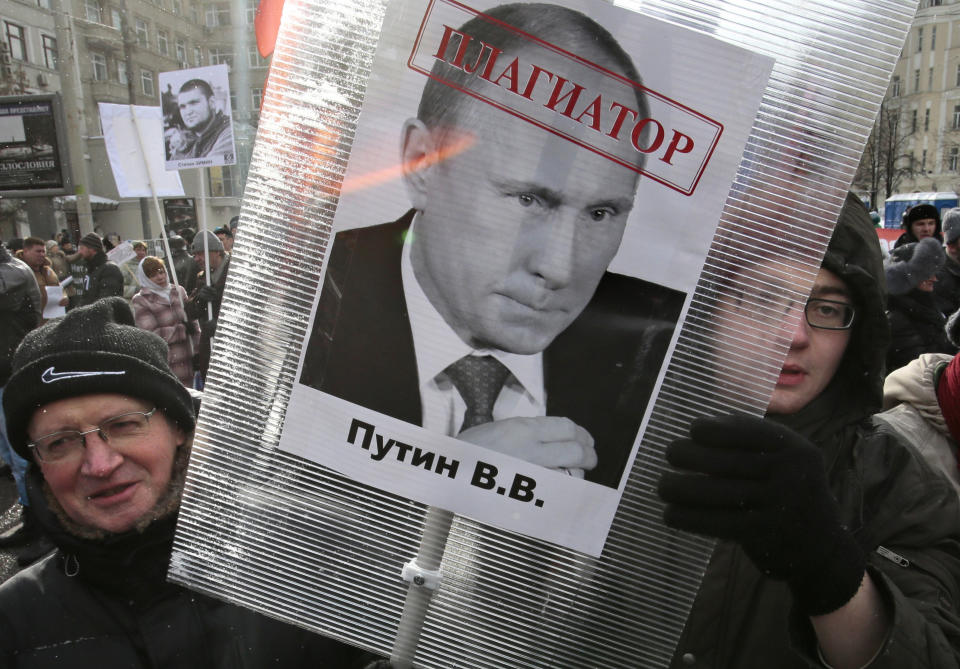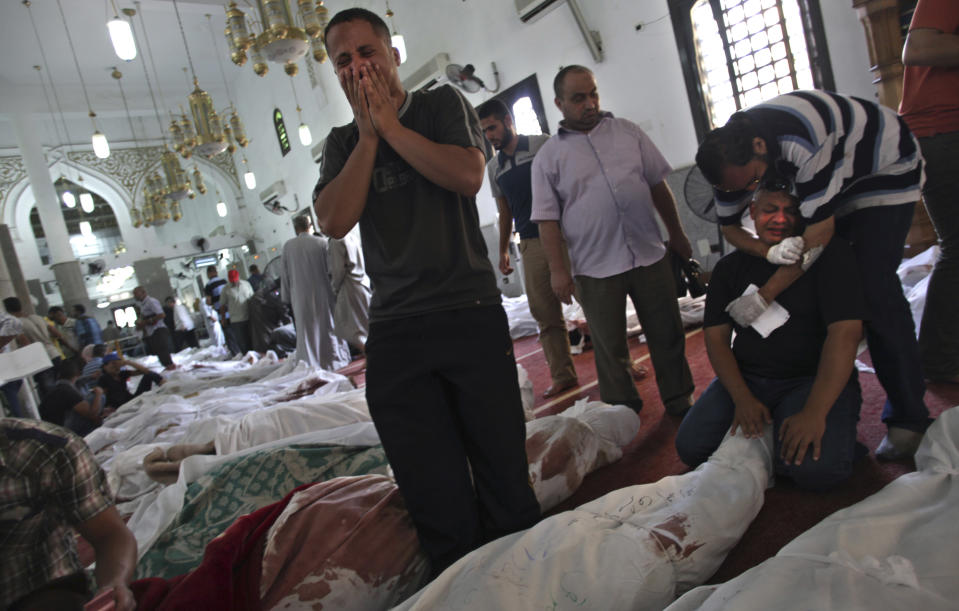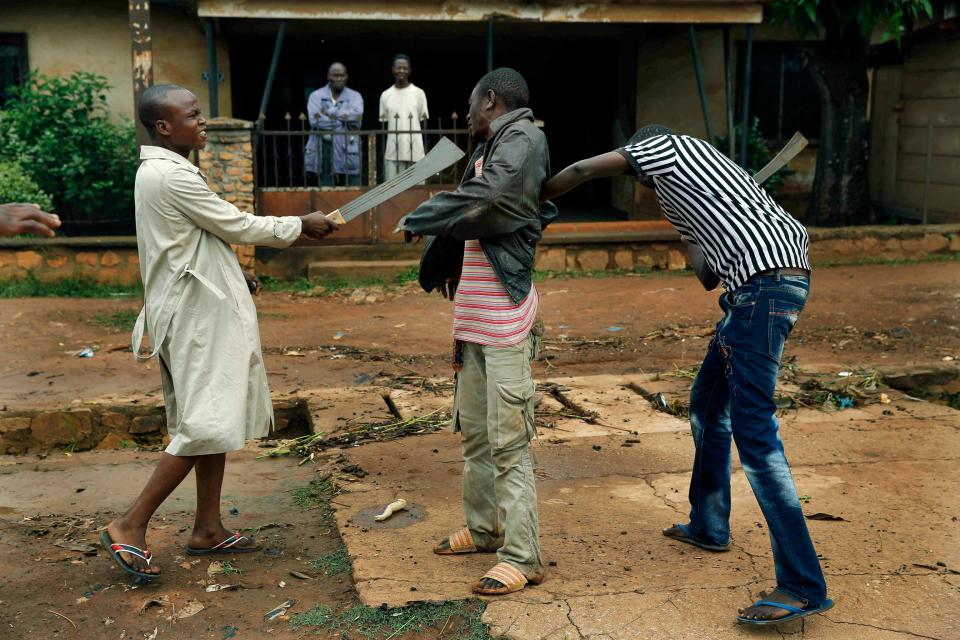Rights group: Egypt coup stuns democracy trend
NEW YORK (AP) — Civil rights and liberties around the world declined for the eighth straight year, dragged down by the Egyptian military's coup, Venezuela clinging to authoritarianism and Russian President Vladimir Putin's crackdown on opposition groups, according to a pro-democracy watchdog group.
The erosion of civil liberties and rights in 2013 was also driven by vicious civil wars or terror campaigns in Syria, Central African Republic, South Sudan, Afghanistan, Somalia, Iraq, and Yemen, Freedom House said Thursday.
The report showed 54 nations showed declines in political rights and civil liberties, and 40 showed gains — the eighth year in a row that erosion exceeded improvement, and the longest stretch since the first Freedom House democracy report was published 41 years ago.
A year ago, the Washington-based Freedom House had pointed to the pro-democratic Arab Spring rallies in Cairo since 2011 as a hopeful sign for reform in Egypt and urged Washington to encourage the trend. Instead it resulted in a coup deposing democratically elected President Mohamed Morsi, of the Muslim Brotherhood.
"The United States has influence in Egypt, we give the Egyptian military major assistance, yet we have been unwilling to even describe what happened as a coup, and Secretary of State John Kerry has said, on Aug. 1, that Maj. Gen. Abdel-Fattah el-Sissi and the force now in power are 'restoring democracy,'" Arch Puddington, Freedom House's research director, told The Associated Press.
"We see developments in Egypt since the coup as a major step backward," Puddington said. "Conditions in Egypt are dangerously close to conditions under Hosni Mubarek before the Arab Spring."
Freedom House, which has ranked national trends in civil rights and liberties since the 1970s, said it is worried by a new trend in totalitarianism, in the form of bogus democracies, in which the ruling party or class cripples the opposition, co-opts the media and hobbles civil society groups, without crushing or banning them. Elections are held that are nominally free and fair, but which invariably endorse the ruling establishment.
Freedom House calls this "modern authoritarianism" and cited elections last year in Zimbabwe, Venezuela and Ecuador as examples of the trend. It also pointed to the Russia government dominance of TV and the recent dissolution of independent news agency RIA Novosti, which has been merged with nationalist media outlet Russia Today.
Ukraine under President Viktor Yanukovych has also gained control of media outlets and censored opposition candidates, Freedom House said.
It noted that China has pressured news outlets by delaying or withholding visas for foreign reporters who write about human rights abuses or about the business interests of China's leaders and their families.
Turkey set a worrisome European example by jailing reporters, imprisoning more than any other nation, and by pressuring media outlets to sell their interests to government cronies.
Freedom House said, political gridlock between President Barack Obama and his Republican opponents in Congress has hobbled the United States' response to developments in the Middle East.
"We did see some hope a year ago; what concerns us is that the administration tends to lose interest and to retreat when conditions get more complicated and difficult," Puddington said.
In addition, Freedom House noted that the Obama administration had freed few detainees from Guantanamo, as the president had once promised.
The group also pointed to the uproar over U.S. eavesdropping and data-collection under by the National Security Agency, as disclosed by former NSA contract worker Edward Snowden.
Separately, the White House "came under fire during the year after prosecutors gained access to the telephone records of journalists who worked for The Associated Press as part of an internal investigation into leaked national security information," the Freedom House report said.
Among the more positive trends seen in 2013 by Freedom House, the number of electoral democracies increased by four to 122, with the addition of Honduras, Kenya, Nepal and Pakistan.
Freedom House also released its "worst of the worst" list of countries that ranked at the bottom of both the political rights and civil liberties spectrums: Central African Republic, Equatorial Guinea, Eritrea, North Korea, Saudi Arabia, Somalia, Sudan, Syria, Turkmenistan and Uzbekistan. It also ranked two territories, Tibet under China, and Moroccan-ruled Western Sahara, as equally bad.
___
Freedom House's "Freedom in the World 2014" report:"
http://freedomhouse.org/report/freedom-world/freedom-world-2014





